What Is It Like Pulling Chemical Tankers?
Topic 3028 | Page 1
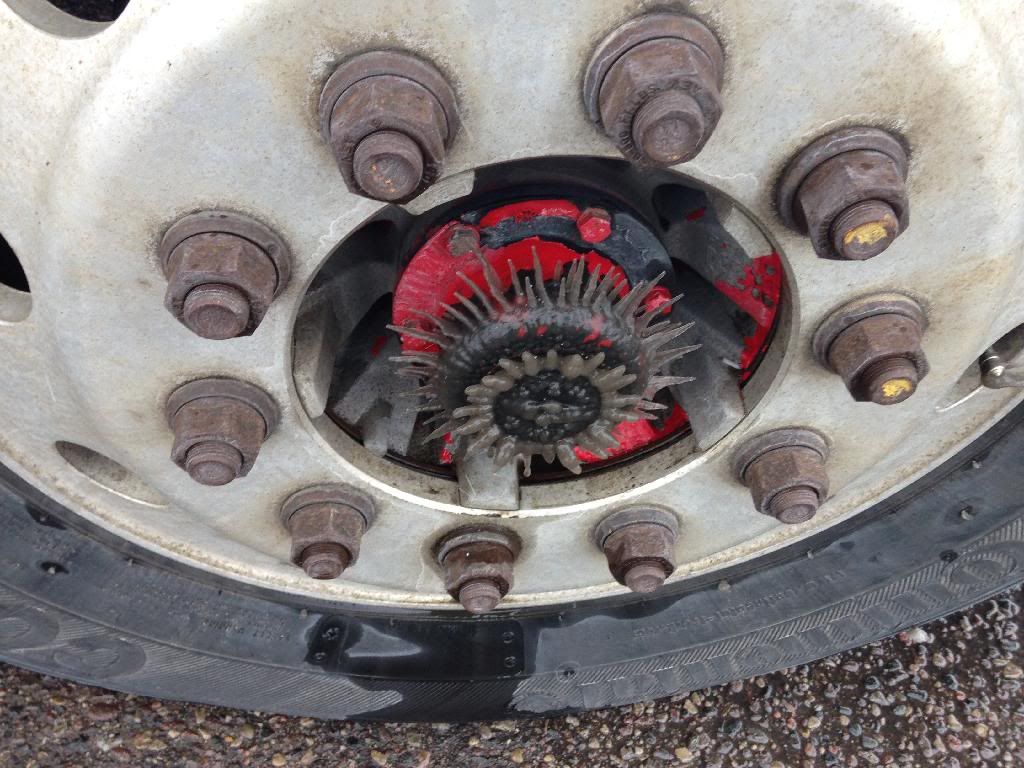
Every company is different. It is true O/O gets paid more but they have A LOT of bills to cover from what they get paid. It is hard to compare O/O pay to a company driver pay.
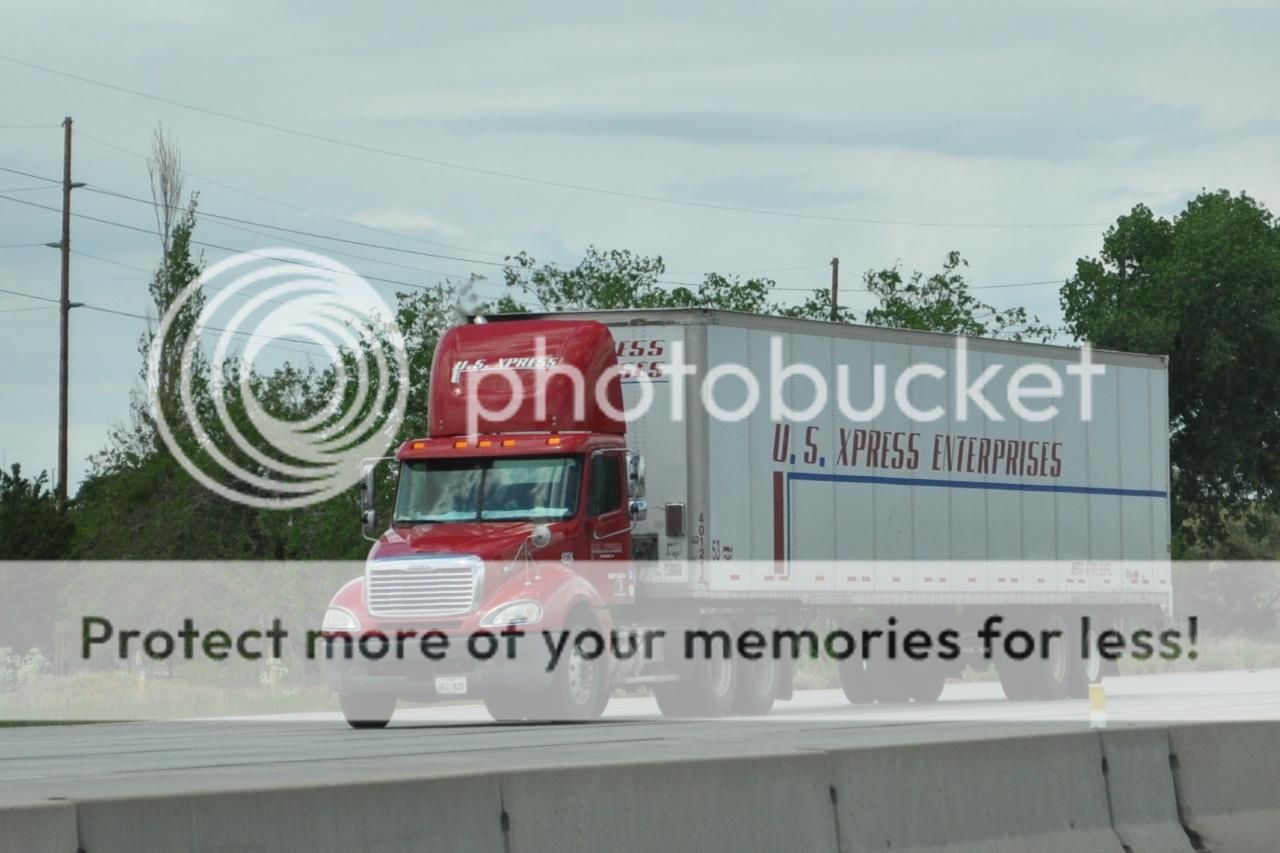
I drove a liquid chemical tanker as my first driving job. I'll shed some light on what I think your question is... But I think you have 2 questions. You are asking if O/O makes more money? You are also asking if tanker drivers make more money than other types of freight?
O/O gets paid more but has more bills to pay. If you are an O/O you are a business owner, so you have to pay for your truck payment, your fuel, your repairs, taxes, permits, insurance... ALL that kind of stuff. So what you really have to look at is what is an O/O's net profit compared to a company driver. Trucking has low profit margins because it is not really a value added service. We move stuff from A to B, and so does the other company, and the other, and the other. All the companies are the same pretty much, there's nothing that makes one company special compared to another. So it is hard to charge more to a customer because they can just go to the next guy and get a lower price. That's trucking a nutshell I guess.
Now your second question is about tankers. A topic near and dear to my heart! lol. Tanker drivers generally get paid more than dry van or reefer drivers. But flatbed drivers also get paid more than dry van and reefer. The reasons are because there is some physical labor involved and some added danger of driving a tanker or flatbed. There are probably only 150,000 tanker drivers out of the several million truck drivers in total, same with flatbed drivers, I am not sure of the number but it is smaller than dry van/reefer drivers.
Tanker drivers get paid per mile just like other drivers, generally more than dry van/reefer. But we also get paid for loading and unloading the product. The general rate is $25-$35 for a load and same for an unload. So for example, I get to a shipper with an empty tanker and I get my hoses, connect them, and take 2 hours to load 6,000 gallons of product into my tanker. I get paid $25 for those 2 hours of work. BUT if I get there and the shipper's staff do the loading... I STILL get paid $25 even though I sat in my truck for 2 hours and watched a movie. Same goes for unloading, I get paid if I unload or if the customer does it. Most companies pay that unload/load pay if the load/unload takes 2 hours or less. If it takes more than 2 hours you get the load/unload pay AND detention pay which is hourly $10,15,20/hour whatever it is for your specific company.
With all that being said, the reason there is load/unload pay for tanker drivers is because there is not much drop and hook freight. The load/unload pay is the company paying you for your time not driving. If you get paid $25 per load/unload and the average load/unload takes 2 hours... how many miles can you drive in 2 hours? About 100 miles. So it's the equivalent of $0.25 cents per mile for those 2 hours. But sometimes a load/unload takes 30 minutes, so in those cases it's the equivalent of $1.00 per mile.
You may pick up a pre-loaded trailer (no pay)... drive 1,000 miles (pay)... and unload the product (pay). You may pick up an empty (no pay).... drive 10 miles (pay)... load product (pay).... drive 1,000 miles (pay)... unload product (pay). You may pick up an empty (no pay)... drive 10 miles (pay)... load product (pay)... drive 1,000 miles (pay)... drop loaded at terminal for another driver to unload later (no pay).
Flatbedders have a similar thing with tarp pay. They get paid whether they tarp the load or whether the customer tarps it or even if it was pre-tarped I believe.
If you can stomach it, I highly suggest starting out in tankers. You get paid well. It's fun, you learn interesting things, and you develop very good driving habits.
Shipper:
The customer who is shipping the freight. This is where the driver will pick up a load and then deliver it to the receiver or consignee.
Terminal:
A facility where trucking companies operate out of, or their "home base" if you will. A lot of major companies have multiple terminals around the country which usually consist of the main office building, a drop lot for trailers, and sometimes a repair shop and wash facilities.
Dry Van:
A trailer or truck that that requires no special attention, such as refrigeration, that hauls regular palletted, boxed, or floor-loaded freight. The most common type of trailer in trucking.Reefer:
A refrigerated trailer.
Drop And Hook:
Drop and hook means the driver will drop one trailer and hook to another one.
In order to speed up the pickup and delivery process a driver may be instructed to drop their empty trailer and hook to one that is already loaded, or drop their loaded trailer and hook to one that is already empty. That way the driver will not have to wait for a trailer to be loaded or unloaded.
HOS:
Hours Of Service
HOS refers to the logbook hours of service regulations.As far as being an owner operator - leave that to the hard-headed ones who like to tell everyone they own a truck and then go beat their heads against the wall every second of their life trying to turn a worthwhile profit. The profit margins in trucking average 3%. That means that if you do pretty well you'll make 3% more than your average company driver. That also means that a lot of owner operators (and lease drivers) make the same or less than company drivers. It's a fool's game. You don't want anything to do with that.
Oil tankers are very unique. Everything ThinksTooMuch said applies to chemical tankers but working in the oil fields is completely different. For one, there's usually a lot of manual labor involved. You're not just driving, you're working on the sites also and the work is dirty and dangerous. Secondly, the oil fields you choose to work in make all the difference. North Dakota, Oklahoma, and Texas are the biggest regions and they're all completely different from each other when it comes to finding housing, pay rates, and of course climate. You have a nice choice of climate - you can work in the 95 degree pseudo-desert heat all summer in Texas or in 35 below zero pseudo-arctic temps in North Dakota! Fun, fun choices.
Now I pulled a food grade tanker for a year and I loved it. It was fascinating. Personally I would never haul chemical tankers because I would much rather haul milk, orange juice, and honey than hydrogen peroxide, sulfuric acid, and acetone. And I would much rather pick up at beautiful orange groves and dairies than massive, disgusting, dangerous chemical factories. Especially considering the pay works out about the same. So I think food grade tanker is a cool job to consider but you'll normally need some experience before you qualify for those jobs. Maybe 6-12 months of OTR will do it.
OTR:
Over The Road
OTR driving normally means you'll be hauling freight to various customers throughout your company's hauling region. It often entails being gone from home for two to three weeks at a time.
Owner Operator:
An owner-operator is a driver who either owns or leases the truck they are driving. A self-employed driver.
HOS:
Hours Of Service
HOS refers to the logbook hours of service regulations.OOS:
When a violation by either a driver or company is confirmed, an out-of-service order removes either the driver or the vehicle from the roadway until the violation is corrected.
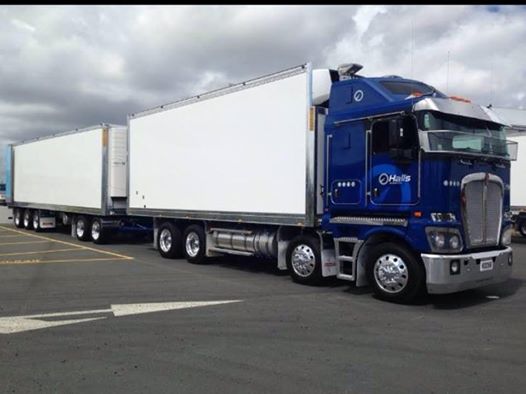
So I think food grade tanker is a cool job to consider but you'll normally need some experience before you qualify for those jobs. Maybe 6-12 months of OTR will do it.
well here in NZ, Fonterra milk tankers is one of the highest paying, most skilled trucking and highest demand trucking jobs going, They don't even LOOK at an application without a 5 year Class 5 (CDL-A) experience period on the CV.
CDL:
Commercial Driver's License (CDL)
A CDL is required to drive any of the following vehicles:
- Any combination of vehicles with a gross combined weight rating (GCWR) of 26,001 or more pounds, providing the gross vehicle weight rating (GVWR) of the vehicle being towed is in excess of 10,000 pounds.
- Any single vehicle with a GVWR of 26,001 or more pounds, or any such vehicle towing another not in excess of 10,000 pounds.
- Any vehicle, regardless of size, designed to transport 16 or more persons, including the driver.
- Any vehicle required by federal regulations to be placarded while transporting hazardous materials.
OTR:
Over The Road
OTR driving normally means you'll be hauling freight to various customers throughout your company's hauling region. It often entails being gone from home for two to three weeks at a time.
HOS:
Hours Of Service
HOS refers to the logbook hours of service regulations.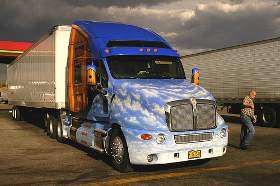
Another thing to think about with tankers. The difference between chemical and food grade tankers is, generally the chemical tanks have baffles in them helping to reduce liquid surge. With food grade tanks, they don't have them. You would have to fight the truck while going down the road more than you would be fighting traffic. That's where the extra OTR experience that Brett mentioned comes into play, learning to fight the truck and win.
OTR:
Over The Road
OTR driving normally means you'll be hauling freight to various customers throughout your company's hauling region. It often entails being gone from home for two to three weeks at a time.
Baffle:
A partition or separator within a liquid tank, used to inhibit the flow of fluids within the tank. During acceleration, turning, and braking, a large liquid-filled tank may produce unexpected forces on the vehicle due to the inertia of liquids.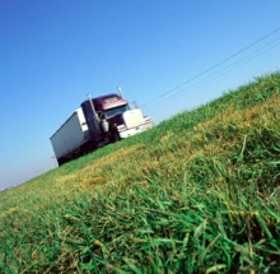
Another thing to think about with tankers. The difference between chemical and food grade tankers is, generally the chemical tanks have baffles in them helping to reduce liquid surge. With food grade tanks, they don't have them. You would have to fight the truck while going down the road more than you would be fighting traffic. That's where the extra OTR experience that Brett mentioned comes into play, learning to fight the truck and win.
Actually, most chemical tankers are smooth bore (no baffles) as are food grade. It's the fuel haulers that typically have baffled tanks.
OTR:
Over The Road
OTR driving normally means you'll be hauling freight to various customers throughout your company's hauling region. It often entails being gone from home for two to three weeks at a time.
Baffle:
A partition or separator within a liquid tank, used to inhibit the flow of fluids within the tank. During acceleration, turning, and braking, a large liquid-filled tank may produce unexpected forces on the vehicle due to the inertia of liquids.Actually, most chemical tankers are smooth bore (no baffles) as are food grade
Apparently this has changed quite a bit in recent years because back in the day most chemical tankers had baffles. The fuel trucks sometimes have baffles and sometimes have compartments so they can carry different grades of fuel.
But when I used to get my tank washed out the workers always preferred food grade not only because of the obvious safety factor but because we didn't have any baffling of any sort. But I never drove a chemical tanker so that's all I know about em.
Baffle:
A partition or separator within a liquid tank, used to inhibit the flow of fluids within the tank. During acceleration, turning, and braking, a large liquid-filled tank may produce unexpected forces on the vehicle due to the inertia of liquids.
Actually, most chemical tankers are smooth bore (no baffles) as are food grade
Apparently this has changed quite a bit in recent years because back in the day most chemical tankers had baffles. The fuel trucks sometimes have baffles and sometimes have compartments so they can carry different grades of fuel.
But when I used to get my tank washed out the workers always preferred food grade not only because of the obvious safety factor but because we didn't have any baffling of any sort. But I never drove a chemical tanker so that's all I know about em.
None of our chemical tanks ( which is primarily what we haul) have baffles. I'm sure there are some out there though. Other chem tanker drivers I talk with say the same, mostly no baffles. We have some fuel trailers that are one compartment with baffles and some multi-compartmented trailers as you mentioned.
Washing chemical tanks is not a job I would want 
Baffle:
A partition or separator within a liquid tank, used to inhibit the flow of fluids within the tank. During acceleration, turning, and braking, a large liquid-filled tank may produce unexpected forces on the vehicle due to the inertia of liquids.
Sorry if I misunderstood lol. What Brett said about oil fields is true. A lot of manual labor and super dangerous. Also it's more expensive, on average, to rent an apartment in the North Dakota oil fields than in NYC. All other expenses are also super inflated in the oil fields.
New Reply:
New! Check out our help videos for a better understanding of our forum features

















Preview:
This topic has the following tags:
Chemical Tanker Food Grade Tanker Tanker







 TT On Facebook
TT On Facebook
Thanks to all the authors of all these interesting, hilarious but most of all, helpful information on trucking. Would like to know more about driving oil tankers. I remember Brett saying that the pay for pulling tankers is not that different from other forms of trucking (I may have misunderstood). A friend of mine who is an O/O (my, my, am beginning truck talk and haven't taken my permit test yet - next week....lol) told me that they are paid more and are also paid for waiting for tanks to be filled and vice-versa. Anyone care to shine a light on this?
See Also:
HAZMAT:
Hazardous Materials
Explosive, flammable, poisonous or otherwise potentially dangerous cargo. Large amounts of especially hazardous cargo are required to be placarded under HAZMAT regulations
OOS:
When a violation by either a driver or company is confirmed, an out-of-service order removes either the driver or the vehicle from the roadway until the violation is corrected.